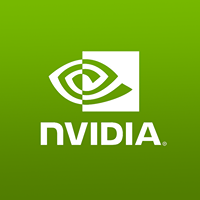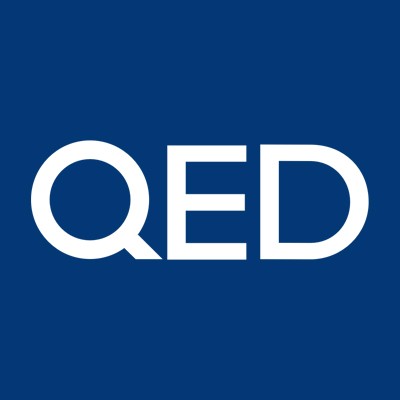Quantum Computing Accelerates: Quantinuum Secures $600M, $10 Billion Valuation
September 5, 2025, 3:37 pm

Location: Haiti, L'Artibonite, Charlotte
Employees: 10001+
Founded date: 1906
Total raised: $100M
Quantum computing pioneer Quantinuum raised $600 million. Its valuation surged to $10 billion. New investors include Nvidia's NVentures, Quanta Computer, and QED Investors. Existing backers like JPMorgan Chase and Honeywell also participated. This capital injection accelerates development of Quantinuum's advanced trapped-ion quantum computers. The company, a Honeywell majority-owned entity, merges hardware and software expertise. It expands its global footprint and prepares for a potential IPO by 2027. This funding highlights intense interest in quantum solutions. Quantum computing tackles problems classical machines cannot. It ushers in a new era of computational power, driving scientific discovery and technological innovation. The move signifies critical progress in the race for quantum supremacy.
Quantinuum, a leader in quantum computing, just completed a major funding round. The company secured $600 million in fresh equity capital. This investment pushed its valuation to an impressive $10 billion. It marks a significant milestone in the rapidly evolving quantum technology sector. The valuation doubled from $5 billion in early 2024. This growth shows strong investor confidence.
New strategic investors joined the round. Nvidia’s venture arm, NVentures, participated. Quanta Computer and QED Investors also made commitments. Existing shareholders reaffirmed their belief. JPMorgan Chase, Mitsui, and majority owner Honeywell all contributed further capital. These investments validate Quantinuum’s position. They underscore the immense potential of its quantum solutions.
Quantinuum specializes in trapped-ion quantum computers. This advanced technology uses charged ytterbium atoms. Electromagnetic fields hold them in place. These ions serve as qubits, the fundamental units of quantum information. Trapped-ion systems offer high fidelity. They boast lower error rates. Crucially, they maintain quantum states longer. This longer coherence allows for complex, extended quantum programs. These programs provide more accurate measurements.
The company develops both hardware and software. Its H-Series family of quantum computers leads the industry. The System Model H2 is the newest iteration. It supports 56 connected qubits. This provides strong error correction capabilities. It also delivers high fault tolerance. This integrated approach ensures seamless operation. It maximizes the utility of its powerful quantum processors.
Major tech players recognize quantum computing's strategic importance. Nvidia's involvement is telling. The graphics chip giant opened its own quantum research lab recently. Nvidia collaborates with quantum firms like Quantinuum. This synergy accelerates quantum research and development. It signals a future where quantum processing could augment traditional computing. This collaboration drives innovation in artificial intelligence and complex simulations.
Quantinuum's origins trace back to 2021. It formed through a merger. Honeywell Quantum Solutions, a U.S.-based hardware developer, combined with Cambridge Quantum, a U.K.-based software provider. This merger created a full-stack quantum entity. Honeywell remains the majority owner. It provides essential manufacturing support. This strong backing ensures continued technological advancement.
The company boasts a global reach. It collaborates with leading research institutions. In February, Quantinuum launched "Reimei" in Japan. This quantum computer was built with Riken. Riken is Japan's largest comprehensive research institution. Reimei translates to "dawn." It represents a powerful classical-quantum hybrid system. It combines quantum capabilities with Riken’s Fugaku supercomputer. This partnership advances scientific discovery. It impacts physics, chemistry, and other critical fields.
Strategic partnerships extend beyond research. Quantinuum collaborates with SoftBank Corp. It works with Infineon Technologies AG. The Science and Technology Facilities Council Hartree Center is another key partner. Its global footprint also expands geographically. The company has established a presence in New Mexico. It expanded into Qatar and Singapore. These moves solidify its international leadership.
Software innovation complements its hardware prowess. Quantinuum released new open-source software tools in August. These include an emulator and a programming language. The new language, Guppy, leverages familiar Python syntax. This provides developers with an accessible framework. These tools support Helios, Quantinuum's quantum hardware-as-a-service offering. This full-stack approach makes quantum computing more accessible. It empowers developers to build advanced applications.
The company eyes a significant future step. Quantinuum is preparing for a potential initial public offering (IPO). Honeywell CEO Vimal Kapur mentioned this plan. The spinoff is estimated to occur by late 2027. An IPO would provide substantial capital. It would allow broader investor participation. This move would further establish Quantinuum as an independent market force. It underscores the maturity of the quantum computing sector.
Quantum computing promises to revolutionize various industries. It can solve problems beyond classical computers. These include drug discovery, materials science, and financial modeling. Complex optimization challenges become tractable. The technology holds implications for national security and defense. This new era of computation demands significant investment. Quantinuum's recent funding accelerates this transformation.
The race for quantum supremacy is intense. Companies globally vie for technological leadership. Quantinuum's $10 billion valuation positions it strongly. Its trapped-ion technology offers distinct advantages. Its integrated hardware-software strategy is robust. This capital injection will fuel further innovation. It will expand its commercial applications. Quantinuum is at the forefront. It drives the future of computational power.
Quantinuum, a leader in quantum computing, just completed a major funding round. The company secured $600 million in fresh equity capital. This investment pushed its valuation to an impressive $10 billion. It marks a significant milestone in the rapidly evolving quantum technology sector. The valuation doubled from $5 billion in early 2024. This growth shows strong investor confidence.
New strategic investors joined the round. Nvidia’s venture arm, NVentures, participated. Quanta Computer and QED Investors also made commitments. Existing shareholders reaffirmed their belief. JPMorgan Chase, Mitsui, and majority owner Honeywell all contributed further capital. These investments validate Quantinuum’s position. They underscore the immense potential of its quantum solutions.
Quantinuum specializes in trapped-ion quantum computers. This advanced technology uses charged ytterbium atoms. Electromagnetic fields hold them in place. These ions serve as qubits, the fundamental units of quantum information. Trapped-ion systems offer high fidelity. They boast lower error rates. Crucially, they maintain quantum states longer. This longer coherence allows for complex, extended quantum programs. These programs provide more accurate measurements.
The company develops both hardware and software. Its H-Series family of quantum computers leads the industry. The System Model H2 is the newest iteration. It supports 56 connected qubits. This provides strong error correction capabilities. It also delivers high fault tolerance. This integrated approach ensures seamless operation. It maximizes the utility of its powerful quantum processors.
Major tech players recognize quantum computing's strategic importance. Nvidia's involvement is telling. The graphics chip giant opened its own quantum research lab recently. Nvidia collaborates with quantum firms like Quantinuum. This synergy accelerates quantum research and development. It signals a future where quantum processing could augment traditional computing. This collaboration drives innovation in artificial intelligence and complex simulations.
Quantinuum's origins trace back to 2021. It formed through a merger. Honeywell Quantum Solutions, a U.S.-based hardware developer, combined with Cambridge Quantum, a U.K.-based software provider. This merger created a full-stack quantum entity. Honeywell remains the majority owner. It provides essential manufacturing support. This strong backing ensures continued technological advancement.
The company boasts a global reach. It collaborates with leading research institutions. In February, Quantinuum launched "Reimei" in Japan. This quantum computer was built with Riken. Riken is Japan's largest comprehensive research institution. Reimei translates to "dawn." It represents a powerful classical-quantum hybrid system. It combines quantum capabilities with Riken’s Fugaku supercomputer. This partnership advances scientific discovery. It impacts physics, chemistry, and other critical fields.
Strategic partnerships extend beyond research. Quantinuum collaborates with SoftBank Corp. It works with Infineon Technologies AG. The Science and Technology Facilities Council Hartree Center is another key partner. Its global footprint also expands geographically. The company has established a presence in New Mexico. It expanded into Qatar and Singapore. These moves solidify its international leadership.
Software innovation complements its hardware prowess. Quantinuum released new open-source software tools in August. These include an emulator and a programming language. The new language, Guppy, leverages familiar Python syntax. This provides developers with an accessible framework. These tools support Helios, Quantinuum's quantum hardware-as-a-service offering. This full-stack approach makes quantum computing more accessible. It empowers developers to build advanced applications.
The company eyes a significant future step. Quantinuum is preparing for a potential initial public offering (IPO). Honeywell CEO Vimal Kapur mentioned this plan. The spinoff is estimated to occur by late 2027. An IPO would provide substantial capital. It would allow broader investor participation. This move would further establish Quantinuum as an independent market force. It underscores the maturity of the quantum computing sector.
Quantum computing promises to revolutionize various industries. It can solve problems beyond classical computers. These include drug discovery, materials science, and financial modeling. Complex optimization challenges become tractable. The technology holds implications for national security and defense. This new era of computation demands significant investment. Quantinuum's recent funding accelerates this transformation.
The race for quantum supremacy is intense. Companies globally vie for technological leadership. Quantinuum's $10 billion valuation positions it strongly. Its trapped-ion technology offers distinct advantages. Its integrated hardware-software strategy is robust. This capital injection will fuel further innovation. It will expand its commercial applications. Quantinuum is at the forefront. It drives the future of computational power.


